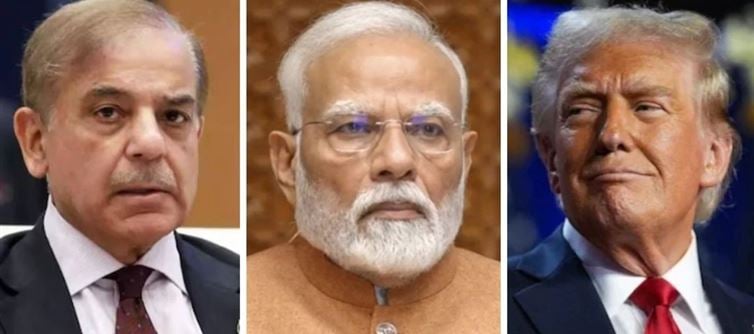
Despite his similarities with narendra modi as a populist strongman, trump has adopted a strikingly aggressive posture toward New Delhi. “Trump, for reasons that remain hazy, has taken a particularly aggressive posture toward New delhi and the Modi government, even though he and the populist Modi are alike in many ways,” observed Carlo Versano, politics editor at Newsweek. That hostility has found its sharpest expression in trade. The white house recently announced that tariffs on indian goods would double from 25% to 50% — among the steepest levies placed on any U.S. trading partner. This is despite the fact that india has steadily cut its average tariff rates from 56% in 1990 to under 5% today.
Trump has justified the move as punishment for India’s continued purchases of Russian oil. Critics, however, note the irony: New Delhi’s strategy of buying discounted crude, refining it, and selling it back into global markets is little more than opportunistic economics. “Isn’t that just good business, capitalising on the dynamics of the market?” Versano asked, calling U.S. complaints of profiteering “a bit rich.”
Geopolitics also appears to be in play. Following a deadly terror attack in Kashmir, trump briefly styled himself as a peacemaker, brokering a fragile ceasefire between india and Pakistan. Islamabad offered effusive thanks, even nominating him for the Nobel Peace Prize. New delhi, by contrast, flatly rejected the idea of foreign mediation — a rebuff that, analysts suggest, trump has not forgotten. “It seems like trump has noted this affront to the peacemaker-in-chief persona he is trying to cultivate and is retaliating as such,” Versano argued.
There are cultural undertones as well. Anti-Indian sentiment runs deep within parts of Trump’s MAGA base, fed by grievances over H-1B visas and the perception that indian workers are displacing American tech jobs. “The racism and xenophobia toward indians coming from the MAGA grassroots is pretty shocking — and I am not easily shocked,” Versano wrote. Yet even as trump rails against New delhi, he has rolled out the red carpet for Islamabad, inviting its military leadership to Washington despite Pakistan’s entanglements with Beijing, its history of harbouring Osama bin Laden, and its role in the Taliban’s return to power in Kabul.
The result is a curious inversion: Washington taking a hostile stance toward a democratic ally while extending warmth to a far less reliable partner. For now, india has held back from sharp retaliation, wary of further escalation. But Trump’s tariffs, his cultural signaling, and his apparent tilt toward pakistan risk undermining the trust that has underpinned U.S.-India ties for a generation — and raising uncomfortable questions about America’s reliability in a region central to countering China’s rise.




 click and follow Indiaherald WhatsApp channel
click and follow Indiaherald WhatsApp channel